scientist
David Suzuki
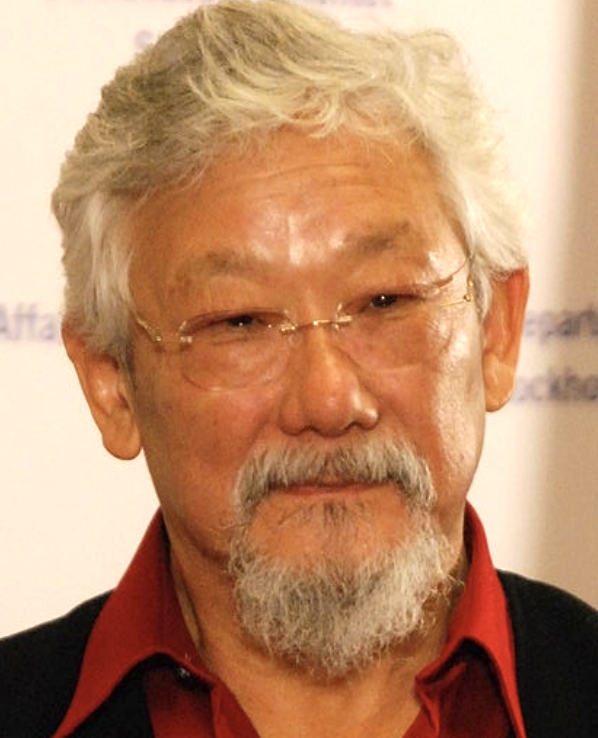
On this date in 1936, scientist and environmental advocate David Suzuki was born in Vancouver, British Columbia. His family was subjected to internment in Canada during World War II and relocation afterward. He earned his undergraduate degree in biology from Amherst College in 1958 and his Ph.D. in zoology from the University of Chicago in 1961. He joined the University of British Columbia in 1963 and worked as a genetics professor until retiring in 2001.
He has been awarded 25 honorary degrees and is the recipient of numerous other awards for his work in science, environmental activism, science writing and science broadcasting. Suzuki has written over 50 books, including 19 children’s books and a widely used genetics textbook, An Introduction to Genetic Analysis (1976).
His television work includes “The Brain,” a Discovery Channel series; “The Secret of Life,” a PBS/BBC series; and “The Nature of Things with David Suzuki.” His more popular documentaries include “It’s a Matter of Survival” and “From Naked Ape to Superspecies.” He is a co-founder of the David Suzuki Foundation, whose goals are protecting nature and the climate, transforming the economy, reconnecting with nature and building community.
He was married to Setsuko Sunahara from 1958 to 1965. They had three children. In 1973 he married Tara Cullis, with whom he had two daughters.
"As an atheist, Suzuki declares, he has no illusions about life and death, adding that the individual is insignificant in cosmic terms. Human beings must come to terms with the unbearable reality that they, like all life, will be extinguished."
— Review of "David Suzuki: The Autobiography," The London Free Press (April 29, 2006)
Lisa Randall
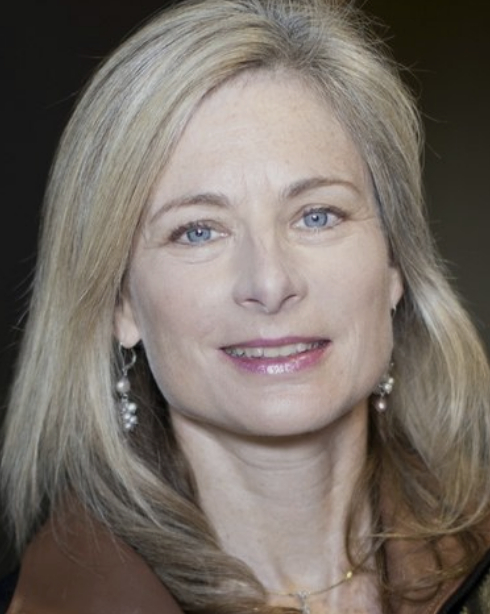
On this date in 1962, particle physicist Lisa Randall was born in Queens, N.Y., the second of three daughters of a sales representative father and stay-at-home mother. She and her younger sister Dana, now a computer science professor at Georgia Tech, went to Stuyvesant, a math-and-science high school in Manhattan.
She was the first female captain of her high school math team and at 17 won first place in the Westinghouse Science Talent Search for her project on a type of complex number called perfect Gaussian integers. She graduated from Harvard University in three years and earned a 1987 Harvard Ph.D. in theoretical particle physics in four years.
Randall was the first woman tenured in physics at Princeton University, then moved to MIT before returning in 2001 to Harvard, where as of this writing in 2019 she is Frank B. Baird Jr. Professor of Science. Her current research focuses in large part on the Large Hadron Collider and dark-matter searches and models.
Randall was among Time magazine’s “100 Most Influential People” of 2007 and was one of 40 featured in Rolling Stone’s 40th anniversary issue that year. She maintains a public presence through her writing, lectures and radio and TV appearances.
Her books include Warped Passages: Unraveling the Mysteries of the Universe’s Hidden Dimensions (2005), Knocking on Heaven’s Door: How Physics and Scientific Thinking Illuminate the Universe and the Modern World (2011), Higgs Discovery: The Power of Empty Space (2012) and Dark Matter and the Dinosaurs: The Astounding Interconnectedness of the Universe (2015). She wrote the libretto in 2016 to “Hypermusic Prologue: A Projective Opera in Seven Planes” by Spanish composer Hèctor Parra, who was inspired by Warped Passages.
“What’s striking about Randall’s writing is its urgency, perhaps because of the way she feels about science, which she has described as analogous to religion; physics, she writes, ‘offers anyone some perspective when dealing with the foolishness of everyday life.’ ” (The New Yorker, Oct. 29, 2016)
Asked if she believes in God by Discover magazine (July 29, 2006), Randall said: “There’s room there, and it could go either way. Faith just doesn’t have anything to do with what I’m doing as a scientist. … So I probably don’t believe in God. I think it’s a problem that people are considered immoral if they’re not religious. That’s just not true. This might earn me some enemies, but in some ways they may be even more moral. If you do something for a religious reason, you do it because you’ll be rewarded in an afterlife or in this world. That’s not quite as good as something you do for purely generous reasons.”
Randall is single. Asked in 2005 by The Guardian when she was 43 about having children, she said, “Children are the biggest issue for most women in science because, like it or not, society still sees women as the primary carers. Part of me really wants to have children, but another part of me wants to put it off as long as possible, because there is so much more work I want to do and I’m very intolerant of distractions.”
“I want solutions and God just seems like such a cop-out.”
— Randall interview, The Guardian (June 20, 2005)
Cara Santa Maria
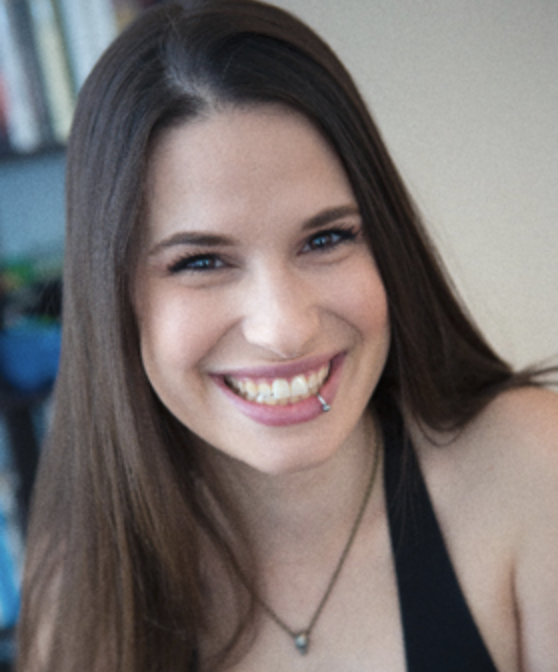
On this date in 1983, journalist and science communicator Cara Louise Santa Maria was born in Plano, Texas. Her parents were raised Catholic but converted to Mormonism as adults. Santa Maria was baptized as a Latter-day Saint at age 8 but by age 15 had left the church and started identifying as an atheist.
She earned a B.S. in psychology from the University of North Texas in Denton in 2004, followed by an M.S. in neurobiology in 2007 and of this writing was working toward a Ph.D. in clinical psychology from Fielding Graduate University in Santa Barbara, Calif.
Santa Maria was laboratory manager and chief cell culture technician at the Center for Network Neuroscience at UNT. She also taught biology and psychology courses at the high school and undergraduate level. In 2009 she moved to the Los Angeles area to begin a career in science communication. She was senior science correspondent for the Huffington Post and later a correspondent on “Bill Nye Saves the World.”
Santa Maria co-produced and hosted a pilot titled “Talk Nerdy to Me” for HBO but it never aired. “Talk Nerdy” is the title of her weekly science podcast, which celebrated its sixth anniversary in March 2020. Atheism and politics are sometimes featured topics. She has been a science correspondent and guest on National Geographic’s TV series “Brain Games.” Since 2015 she has co-hosted “The Skeptics’ Guide to the Universe” podcast and co-wrote the 2018 book with that title.
On Earth Day 2017, she was an emcee at the March for Science in Washington, D.C. “Science is under attack,” she told the crowd. “The very idea of evidence and logic and reason is being threatened by individuals and interests with the power to do real harm.”
From 2009 to 2011, she was in a relationship with television host and political commentator Bill Maher but has never married. Neil deGrasse Tyson presented her with a 2014 Knight Foundation award for her efforts to make science clearer for a broad public audience.
She was the recipient in 2017 of FFRF’s Freethought Heroine award. She told convention attendees she remembers the day when she was 14 that her father told her “I have a moral obligation to God to force you to go to church until you’re 18 so long as you live under my roof.” Santa Maria replied, “Then maybe I won’t live under your roof anymore.” Her acceptance speech is here.
“I don’t believe in God.”
— Santa Maria remarks at FFRF's 40th annual convention (Sept. 15, 2017)
J.B.S. Haldane

On this date in 1892, John Burdon Sanderson Haldane — a scientist who worked in the fields of physiology, genetics, evolutionary biology and mathematics — was born in Oxford, England, to Louisa (née Trotter) and John Scott Haldane, a physiologist and philosopher. Both parents had aristocratic Scottish ancestry. He was raised Episcopalian.
Treated as a miniature adult rather than a child, Haldane proved to be a prodigy, reading by age 3, attending scholarly lectures and assisting his father with experiments. He enrolled at Eton College in 1905, where he became friends with Julian Huxley. Transferring to New College, affiliated with the University of Oxford, he studied mathematics, the classics and genetics, the last of which he is most renowned for. He earned an M.A. in classics from Oxford in 1914.
Serving as a commissioned officer after World War I broke out, he was wounded twice, once so severely he was sent to India to recover. Despite not having an academic degree in the sciences, after the war he was appointed a New College fellow and then did research in physiology and genetics or taught at the University of Cambridge (1922–32), the University of California-Berkeley (1932) and the University of London (1933–57).
Haldane became a Marxist in the 1930s and was London editor of The Daily Worker before becoming disenchanted with communism and leaving the party. He moved to India to head a genetics and biometry lab in 1957, renouncing his British citizenship. He became an Indian citizen in 1961 and worked at the Indian Statistical Institute in Kolkata until his death.
He is regarded as a principal founder of neo-Darwinism, an integration of the theory of evolution by natural selection with Gregor Mendel’s theory of genetics. His major works include “Daedalus, or Science and the Future” (1924), “Animal Biology,” with Julian Huxley (1927), “The Inequality of Man” (1932), “The Causes of Evolution” (1932), “Faith and Fact” (1934), “The Marxist Philosophy and the Sciences” (1938), “Science Advances” (1947) and “The Biochemistry of Genetics” (1954).
In a speech to the Heretics of Cambridge, he read this passage from “Daedalus”: “We must learn not to take traditional morals too seriously. And it is just because even the least dogmatic of religions tends to associate itself with some kind of unalterable moral tradition, that there can be no truce between science and religion.” (Feb. 4, 1923)
Haldane was married twice, first to journalist Charlotte Franken in 1926. They divorced in 1945. Later that year he married Helen Spurway. They met while she was an undergrad at University College London. Twenty-three years his junior, she had earned her Ph.D. in genetics in 1938 under his supervision. Haldane had no children.
He died at age 72 after a long struggle with colo-rectal cancer in Bhubaneswar in eastern India. His skeleton and organs are on display in the Haldane Museum in the pathology department of Rangaraya Medical College. (D. 1964)
“My practice as a scientist is atheistic. That is to say, when I set up an experiment, I assume that no god, angel or devil is going to interfere with its course; and this assumption has been justified by such success as I have achieved in my professional career. I should therefore be intellectually dishonest if I were not also atheistic in the affairs of the world.”
— Haldane in the preface to "Faith And Fact" (1934)
Nikolai Vavilov
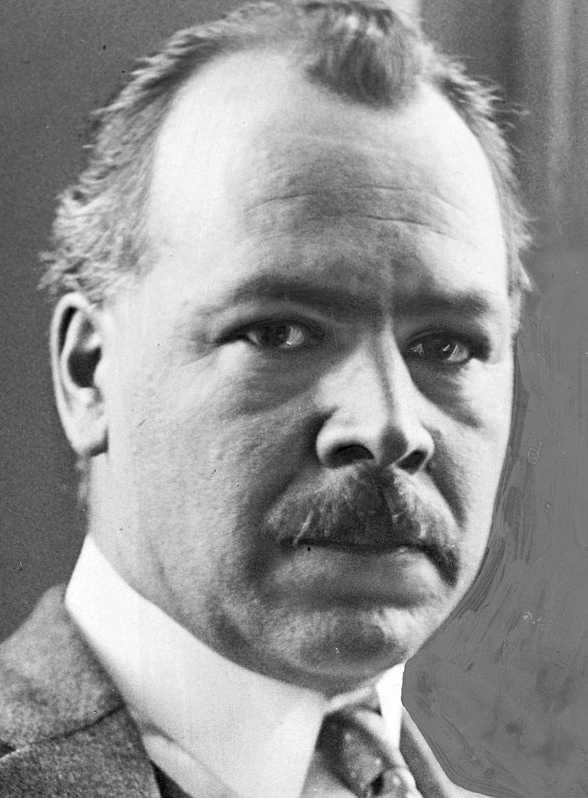
On this date in 1887, Russian geneticist and agronomist Nikolai Ivanovich Vavilov was born to a merchant family of modest means in Moscow. His older brother Sergey would become a renowned physicist.
He graduated from the Moscow Agricultural Institute in 1910, then worked at the Bureau for Applied Botany and the Bureau of Mycology and Phytopathology. In 1913-14 he traveled in Europe and studied plant immunity with British biologist William Bateson, who helped establish the science of genetics.
From 1917-20 he was an agronomy professor at the University of Saratov. His son Oleg (with his first wife Yekaterina Sakharova) was born in 1918. From 1924-35 he directed the Lenin All-Union Academy of Agricultural Sciences in Leningrad. His marriage ended in divorce in 1926, after which he married geneticist Elena Ivanovna Barulina. Their son Yuri was born in 1928.
While developing his theory on the origin of cultivated plants, Vavilov organized a series of expeditions that eventually collected over 250,000 seeds and roots from around the world and were stored in Leningrad. His work ran counter to that of Trofim Lysenko, whose anti-Mendelian concepts of plant biology had won favor with dictator Joseph Stalin. Lysenko’s ascent was due to his promise of quick crop improvement compared to Vavilov’s slower process of hybridization, testing and selection.
Vavilov refused to follow the politically expedient path and was arrested in 1940 and sentenced to death in July 1941, though the sentence was later reduced to 20 years in prison, where he died in 1943 at age 55. The death certificate listed “decline of cardiac activity” but some authors asserted the actual cause of death was starvation.
He was posthumously pardoned by Nikita Khrushchev during de-Stalinization, when his reputation was publicly rehabilitated and he began to be hailed as a hero of Soviet science. In 1993, the 50th anniversary of his death, James F. Crow, an evolutionary biologist and population geneticist at the University of Wisconsin-Madison, wrote an article titled “N.I. Vavilov, Martyr to Genetic Truth” in the journal of the Genetics Society of America.
Crow wrote: “Vavilov was a strong believer in the importance of selection, both for evolution and as a tool for the plant breeder. Finding diverse types, hybridizing them, and especially selecting among the recombinants, gave the best hope for producing better plants. And, of course, he was right. But the slow and certain program he was advocating could not compete in the political arena with those who promised instant gratification. Here lies a lesson for all science.”
In 2020, National Geographic’s “Cosmos: Possible Worlds” featured an episode on Vavilov. (D. 1943)
“Despite his strict upbringing in the Orthodox Church, Vavilov had been an atheist from an early age. If he worshipped anything, it was science.”
— "The Murder of Nikolai Vavilov: The Story of Stalin's Persecution of One of the Great Scientists of the Twentieth Century" by Peter Pringle (2008)
Anthony Fauci
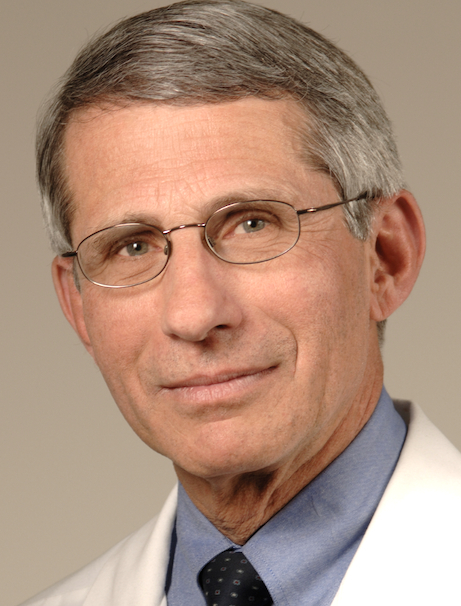
On this date in 1940, physician and immunologist Anthony Stephen Fauci was born in Brooklyn, N.Y., to Eugenia (Abys) and Stephen Fauci, owners of a family pharmacy. His pharmacist father was known as “Doc” in the neighborhood. Fauci attended a Catholic high school run by the Jesuits and graduated with a B.A. in classics in 1962 from the College of the Holy Cross, a Jesuit school in Worcester, Mass.
He graduated first in his class at Cornell University Medical College in 1966 and completed a residency in internal medicine. He then joined the National Institutes of Health (NIH) as a clinical associate at the National Institute of Allergy and Infectious Diseases (NIAID). He became NIAID director in 1984, a position he still held in 2020.
He turned down several offers to lead the NIH and has been at the forefront of U.S. efforts to contend with viral diseases such as HIV, SARS, the 2009 swine flu pandemic, MERS, Ebola and COVID-19. As a member of the White House Coronavirus Task Force in 2020, he became a public health spokesperson for the office of the president during the pandemic.
Due to occasional mild but public disagreements with President Trump, Fauci was criticized by right-wing pundits and received death threats resulting in the need for a security detail. He was demonized by “coronavirus truthers” and “anti-vaxxers” calling the pandemic a hoax and favoring so-called herd immunity over vaccination. He has received 30 honorary doctorates for his scientific accomplishments and between 1981-94 was the fifth most-cited scientist out of over 1 million worldwide who published articles in scientific journals.
He married Christine Grady, 11 years his junior, a nurse and bioethicist with the NIH, in 1985. As of this writing, she was chief of the Department of Bioethics at the NIH Clinical Center. They have three daughters, Jennifer, Megan and Alison.
Asked in 2003 by TheScientist magazine if he was a man of faith, given that he was raised Catholic and attended Jesuit schools, Fauci replied: “Broadly and generically, I’m not a regular church attender. I have evolved into less a Roman Catholic religion person [to] someone who tries to keep a degree of spirituality about them.”
Brian Lamb read the above statement to Fauci in a later interview (C-SPAN, Jan. 8, 2015) and asked him if that was still true. “Totally accurate today,” Fauci said. He also told Lamb that “there are a lot of things about organized religion that are unfortunate, and I tend to like to stay away from that. … [T]he idea about the organization of religion is not something that I adhere to very much.”
PHOTO: Fauci in 2007; NIAID photo under CC 2.0.
“I look upon myself as a humanist. I have faith in the goodness of mankind.”
— Interview, TheScientist magazine (May 2003)
